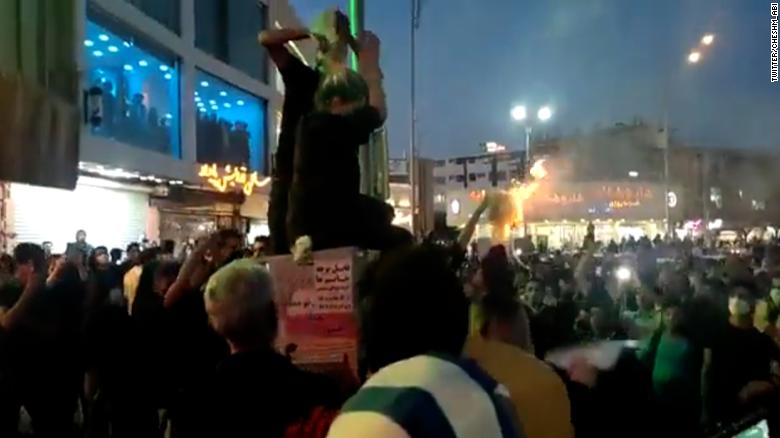Iran’s sweeping internet blackouts are a serious cause for concern

The people of Iran had taken to the streets to demonstrate after fuel prices surged as much as 300% overnight. The New York Times Now, some worry history could repeat itself amid renewed civil unrest. Protestors have flooded the streets in recent days after Mahsa Amini, a 22-year-old woman, died while in custody of Tehran’s morality police. Iranian officials claimed she had a heart attack, but her family has said she had no preexisting heart condition. “I have no idea what they did to her,” her father, Amjad Amini, told BBC Persia. “Everything is a lie.”Mobile networks have been largely shut down, according to internet watchdog Netblocks. And Meta has confirmed that Iranians are having trouble accessing some of its apps, including WhatsApp and Instagram. While it is not the total internet shutdown of 2019, tech experts say they are seeing a similar pattern. “I don’t think there’s anything that would make us think that this is accidental,” said Doug Madory, the director of internet analysis at network intelligence company Kentik, Inc. “My understanding given the context is the objective was to stop people from sharing videos and communicating with the outside world.”Alp Toker, the director of Netblocks, said “the impacts of these disruptions can’t be overstated.” Earlier this week, Netblocks said the Iranian people are now subject to “the most severe internet restrictions since the November 2019 massacre.””So far, they are shutting down the mobile data and making it really difficult to work with the home connection landline,” Rashidi told CNN Business. “They are so slow, with a lot of throttling, so it’s difficult to work on landline as well.”As Madory puts it: “If your phone has no mobile service, mobile data, you can’t will it into existence.” Netblocks’ Toker said the methods of internet restriction and disruption are so varied that even more advanced tools to get around the blackouts are becoming more difficult to use. For those who still have fixed-line connections, “a VPN or the Tor network might be useful,” Toker added. “Although, these are also restricted by authorities, so they are far from reliable.” “The only real option during a total disconnection is to document things offline with the hope that when you’re back online, you can timestamp them and distribute them, just as evidence of human rights violations, for example,” said Toker. Some are now calling on the tech industry to do more to help. Meta-owned WhatsApp, for example, has said it “will do anything within our technical capacity to keep our service up and running.” Rashidi praised Meta, for “being helpful,” but called on international tech companies and organizations to do more to reach out to the people of Iran directly, and help them keep access to their rights. Encrypted messaging app Signal is asking for the public’s help in setting up “a proxy server that will enable people in Iran to connect to Signal” amid the blackouts. Rashidi also criticized billionaire Elon Musk, who recently tweeted that his satellite broadband service, Starlink, would seek an exemption from sanctions to provide internet in the country. “I know what’s realistic and what is not realistic and I don’t think Elon Musk is serious,” Rashidi said. Despite the fear gripping his homeland right now amid the protests and internet blackouts, Rashidi does see reason for hope. He feels the spirit of these protests, which are “being led by women,” are different than the unrest in the past.”I’m seeing more people are united,” he said. “Whatever is the result of these protests, we are moving to a new chapter of Iran.”






